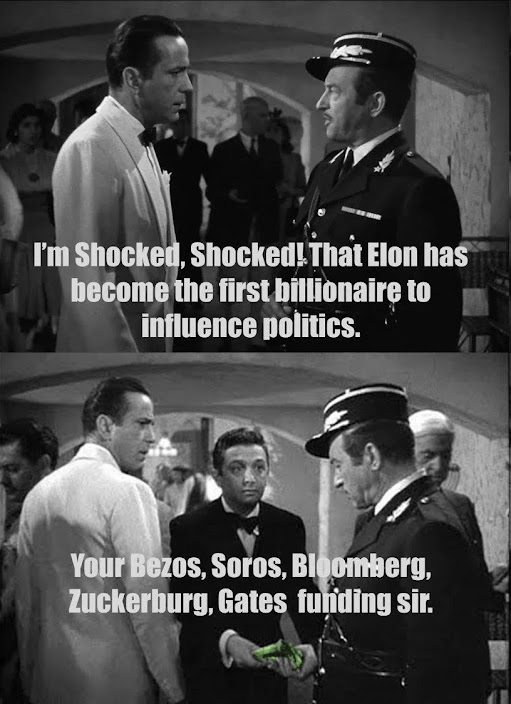 |
| Insert all the needed commas. |
 |
| Nice. |
My buddy Charles had an interesting suggestion regarding the driver's-license-renewal issue: get a Korean driver's license, then hold off on getting an international permit until I really need it because international permits are good for only one year. It turns out, though (see this source and this one for starters), that I'd probably need to take a knowledge test to get the Korean driver's license. Since my Korean's not good enough to take the test in Korean, I'd have to go for the English option. This source says you have to score at least 32 right out of 40 multiple-choice questions. There are sample tests available online, as well as an app for practicing, but I really had trouble understanding some of the weird, unnatural English (Redditors, however, assure me the test is super-easy and common sense... maybe they Zenned their way through the poor English). There's also a behind-the-wheel test and possibly also a health test. Though more expensive, it strikes me as simpler just to go to the States to renew my US license. Since the only place I'd be driving is in the States, a US license is all I need; no reason to worry about international permits, and I'd be good for seven years.
So assuming I've filled out all of my documentation correctly and have provided all of the right materials, I ought to get a new passport in a couple of months. Because it's a new passport with a different passport number, this means I have to root through all of the services where I've left passport data and enter the new passport number. I'll also need to obtain a new PCC number (Korean Customs clearance code) for places like iHerb, Coupang, and maybe also Amazon (although Amazon wants a PCC number only if you're a Korean citizen, which I'm not). After I get all of that squared away,* I will then go to the States and renew my US/Virginia driver's license.
But we're not done: at some point either later this year or sometime next year, assuming my boss's startup actually starts up, I'll be moving south to Suwon, which sits just below Seoul and is connected to the big city by subway and maybe by bus/train. Once I'm in my new residence, I have to update my mailing address for all of the services that mail me things—so again, iHerb, Coupang, Amazon, etc. Another wrinkle: even if the boss's startup starts up in just a month or two (not likely), I need to stay in my current place until I get my F4 visa renewed. The current expiration date for the visa is late October of this year, based on my current passport's expiration date. The earliest I can renew the F4 is four months prior to expiration, so late June. With the passport fresh for ten years, I can then re-renew my F4 visa for another three years. (My driver's license, as I wrote above, will be good for seven years. The different validity periods are annoying.) Also: once I'm in Suwon, I'll need to visit the local district office to update my residential address for my F4. Always one more thing to do.
This is a lot of shit to juggle mentally for a guy who's had his brains scrambled by a stroke and a heart attack. Luckily, these problems are all coming at me slowly. And after this year, I ought to be squared away for the next little while. Fingers and tentacles crossed.
__________
*Logically, there's no need to square all of this away first, but I may as well do it first, while the problem is still right in front of my nose.
No survivors are expected from the crash involving a passenger plane carrying 64 people and a military helicopter near Ronald Reagan National Airport (DCA), DC Fire and EMS Chief John Donnelly Sr. said on Thursday morning.
The Federal Aviation Administration (FAA) confirmed in a statement that a Bombardier CRJ700 plane and a Sikorsky H-60 helicopter collided in the skies at around 9 p.m. EST.
American Eagle Flight 5342, operated by PSA Airlines, a subsidiary of American Airlines, was carrying 60 passengers and four crew members while making an approach to land at Reagan Airport in Crystal City, Virginia, about five miles from Washington.
The plane had departed from Wichita, Kansas.
“At this point, we don’t believe there are any survivors from this accident, and we have recovered 27 people from the plane,” Donnelly said in a briefing on Thursday morning.
Audio from LiveATC.net, a source for in-flight recordings, captured what appears to be the final communications between the three crew members of the helicopter, call sign “PAT25,” before it collided with the plane, which was referred to as “CRJ” in the recording.
Just 10-11 miles up the road from where I used to live.
UPDATE: What the fuck? Well, after my initial shock, I'm not really surprised. Predictable.
 |
| We obviously don't know what we want. Unless this is "Balance of Power." Where does the hyphen go? |
 |
| Where does the hyphen go? What else would you change? |
 |
| Find the capitalization, comma, spelling, and other errors. Of course, Trump is an easy target. |
 |
| There will only ever be one Roy Batty. |
 |
| sexy, sexy grooming |
 |
| It's all theater. Both of these were planned and fake. |
 |
| Los Demonios |
 |
| What's the error in the second paragraph? Where does the comma go in the third bit of text under "Trending Now"? |
 |
| We need at least one comma, not to mention a lot of periods. Where? |
 |
| What's the problem with the language in the first frame? And in the second? |
Lol, welcome to the world of being covered by the press. In my 40+ years of being interviewed, I’ve encountered journalists who write their headline after, based on the actual interview, but also many (like below) who have decided on the angle before they meet me. This makes the… https://t.co/mcfQ9JB2Ye
— Justine Bateman (@JustineBateman) January 29, 2025
A military language teacher gives his tips for quickly learning a new language.
AI currently seems good enough to create people and creatures in poses. Maybe these characters can walk, but mostly, they just stare and shift posture slightly. AI still doesn't understand consistency: flash an image of someone famous, then come back to that person later, and he or she has changed slightly in terms of looks and clothing. AI seems to have a terrible time with continuity. Still, the imagery seen below (probably borrowed from somewhere) can at times be impressive. But is it even really AI?
 |
| If you start a sentence with "I wonder," don't use a question mark because you're not asking a question. |
 |
| The above needs at least one comma. Where? |
 |
| Bye, "Doctor." |
 |
| Repeatedly warning the stubbornly stupid never works. |
 |
| Great. More government. I'm not happy about this. |
 |
| A hyphen, a comma, a question mark, and a bunch of periods. But where? |
 |
| What's wrong with the above sentence? Find the mistakes and correct them. |
 |
| Where does the comma go? Where is the capitalization problem? |
 |
| How does Bjørk feel about this? |
Traditionally, the Korean lunar-new-year soup is ddeokguk/떡국, a kind of rice-cake soup. I think ddeokguk is fine but a bit boring, so I made ddeokmanduguk/떡만두국, or rice-cake-and-dumpling soup. It's just a thrown-together concoction of mostly store-bought ingredients: frozen mandu (dumplings), packaged ddeok, packaged seaweed, packaged shredded beef, and mostly bouillon for the broth. I cooked the scrambled eggs and chopped the green onion; that was my little contribution to the meal. So the soup isn't traditional in any sense, but I ate two bowls of it, plus dessert and drinks, so I'm now all carbed up for the next month. I'll have to fast strictly, or do something close to that, tomorrow. Here's hoping I don't die tonight, killed by an excess of carbs.
Happy Lunar New Year! The year can begin in earnest now; Koreans see the lunar new year as the "real" new year. Solar new year (what we Yanks simply call "New Year's") is a Western convention, not a huge, family event.
 |
| broth, ddeok, mandu, beef, egg, and scallions |
Second bowl:
 |
| broth, ddeok, mandu, beef, egg, and scallions, plus quail eggs, kimchi, and seasoned seaweed |
Enjoy the day. One more day of holiday for most of the Korean working world, but just more "vacation" for me. I'll continue with Skillshare courses tomorrow. I ought to blog about what I'm learning. Feynman says, rightly, that you should demonstrate your understanding by teaching back what you've learned. Hey, it's in my book. And credited to Feynman!
You can always count on Republicans to shoot themselves in the dick.
Friday’s Senate confirmation of Pete Hegseth to lead the Pentagon was a major win for those hopeful that a second Trump administration will bring transformational change to the federal government. But the uncertainty over whether the Senate GOP would approve his nomination inadvertently shined a light on a glaring problem with the Republican Party.
Until the moment Vice President J.D. Vance cast the tie-breaking vote in his favor, it was virtually unknown whether Hegseth had the votes necessary to become America’s next secretary of defense. The Wall Street Journal reported that Sen. Thom Tillis, R-N.C. — who previously pledged to support Hegseth and President Donald Trump’s other nominees — was seemingly getting cold feet on voting to confirm the Army veteran ahead of Friday night’s confirmation vote.
With all Democrats expected to vote in opposition, Hegseth could only afford to lose three GOP votes. At that point, Sens. Susan Collins, R-Maine, and Lisa Murkowski, R-Alaska, had already announced their respective intent to oppose Hegseth, and Sen. Mitch McConnell, R-Ky., had given no indication of which way he would vote.
Assuming McConnell sided with Collins and Murkowski, a “no” vote from Tillis would have sunk Hegseth’s confirmation.
While the North Carolina Republican ultimately made the right choice by supporting Hegseth, the entire spectacle raises a significant question: Why was the success of Hegseth’s confirmation in question to begin with?
What Republican voters have seen play out with transformational picks like Hegseth has been anything but the “advice and consent” role delegated to the Senate and its members. Rather, it’s been a display of the GOP establishment’s willingness to sabotage these Trump appointees before the upper chamber votes on their nominations.
[ ... ]
It’s fine for GOP senators to ask legitimate questions of any prospective appointee and his or her views. That’s especially true when those nominees hold policy positions that go against a conservative worldview, such as Kennedy’s previously espoused support for abortion.
But the deliberate efforts by some Republican senators to subvert these picks have nothing to do with their commitment to conservatism or Trump’s vision and everything to do with the threat the nominees pose to the D.C. status quo.
[ ... ]
GOP voters should not have to wait around and guess whether Republican senators — especially those from “red” states who voted for many of Joe Biden’s radical nominees — will be supporting the appointees of a Republican president. The fact that they do is an indictment of the pathetic state of the Republican Party, whose members conservatives can always count on to snatch defeat from the jaws of victory.
Why are these people still in office? Don't answer that. I'm pretty sure I know why.
NK troops are being used by Russian forces as cannon fodder to soak up Ukraine's attack before sending in the more competent Russian troops. It's brilliant... at least until the North Korean soldiers themselves catch on. But how brainwashed are they?
 |
| Bernie never learns. |
 |
| Seriously, what aged her so radically? She used to be a good-looking woman. Crazy, but good-looking. |
 |
| You no good, Troy. |
 |
| Welcome to the future. |
 |
| Nope, he's gone now. Let history shit on him. |
 |
| Representation! |
 |
| "Girl! I wanna take you to a gay bar!" (Keep in mind Elon is also a Canadian citizen.) |
 |
| Where does the comma go? |
 |
| Where does the hyphen go? |
 |
| Where does the hyphen go? |
Jim Acosta, the pugnacious, anti-Trump CNN "journalist," has left CNN after being told he'd be relegated to a midnight time slot as part of a network "reshuffle." I have no doubt that this is mainly about money. As a business, you hire people with principles, ideals, and ideologies, but because you're a business, it comes down to money, and if turds like Acosta are losing you money, then you've got to do something about it eventually. (This is, by the way, a lesson that most Hollywood studios, rich as they are, still refuse to learn.)
BREAKING: Jim Acosta is OUT at CNN: report
Notorious never-Trump "journalist" Jim Acosta is leaving CNN, according to a new report.
Oliver Darcy's Status News was the first to report the news:
"The anchor, I’m told, signaled to associates in private conversations over the weekend that he intends to depart the network after its chief executive, Mark Thompson, booted him from the morning programming lineup — a move that conspicuously coincided with Donald Trump’s return to power.
"CNN brass, as we first reported earlier this month, decided to strip Acosta of his 10am show, which he has anchored to great ratings success over the last 11 months, at times even seeing higher viewership than programs in the channel’s prime time bloc. Acosta was instead offered the less-than-desirable option of anchoring a show from midnight until 2am ET. CNN pitched the gig to Acosta as anchoring during prime time on the West Coast and said he could move to Los Angeles to host the program. But the reality is the program would have aired at a time in which cable news viewership is at its lowest levels."
As they say: couldn't have happened to a nicer guy.
Even with the recent Chinese "breakthrough," I think it's going to be a long time before we have to worry about AI taking everything over.
ALLOD stands for America's Last Line of Defense and is the name of a leftie satire site that generates memes that righties then pick up and cluelessly trumpet as truth. The whole point is the gotcha. TechARP (leftie site?) says the following:
America’s Last Line of Defense (ALLOD) is actually a political satire page on Facebook, that was created by Christopher Blair and a few liberal bloggers to poke fun at far right conspiracies (archive).
However, their posts are often picked up and promoted by Trump-supporting conservatives who appear to believe that they are genuine.
So, no: Bishop Mariann Budde, a leftist who preached a woke sermon to Donald Trump, causing discomfort and outrage (what genius scheduled her to speak?), during an inauguration ceremony for Trump was not removed from her position at the Washington National Cathedral. This is wish-fulfillment fantasy.